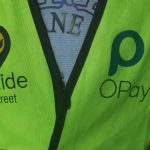The ex-depot price of petrol has been boosted from N630 to N720 by private depot owners, causing a creeping fuel shortage in Lagos and other parts of the country. This happened on Sunday, as the scarcity of petrol worsened in Abuja and the surrounding states, with some filling stations charging as much as N900 per litre for PMS.
Due to their refusal to purchase fuel from the private depots at outrageous prices, several filling stations in Lagos, Ogun, and other states have run out of supplies, according to reporters. The National Vice President of the Independent Petroleum Marketers Association of Nigeria, Hammed Fashola, stated that several filling stations did not open for business on Sunday because they were out of fuel. He made this claim in an interview with some correspondents.
The vice president stated that Nigerians should be informed about the situation of the product by the Nigerian National Petroleum Company Limited, which is now the only importer of gasoline.
“Those that shut their stations do not have fuel to sell. When you don’t have fuel, you cannot open your station. That is the problem. You know the NNPC is the sole importer of this product. I think it is in the best position to tell us what is actually going on.
“Currently, independent marketers cannot buy what the private depots are selling. They are selling fuel between N715 and N720 per litre. How much will marketers sell the product? Look at the cost of bringing it to their depots; with transportation and other depot expenses, it will be too costly for them. That is why the stations are shut down. Some marketers refuse to go and buy because they know the masses cannot afford high-priced petrol in this economy. That is the situation for now,” he stated.
According to information gotten by some reporters, the NNPC supplies gasoline to large marketers for less than or about N600, while third parties, who are private depot owners, used to sell PMS to independent marketers at a rate of N630–650/litre.
Leaders of IPMAN have repeatedly charged the NNPC to provide them with gasoline directly, just as they do for large marketers, but the NNPC has not complied with this request. Fashola urged Nigerians to purchase necessities rather than rushing into purchases in order to keep fuel in circulation.
According to information obtained independent marketers supplied gasoline for between N750 and N800 per litre, while major marketers offered it for less than N650. Officials from the Nigerian National Petroleum Company Limited confirmed to correspondents that they had raided the different depots in Apapa on Friday. They ordered the depot owners to give fuel supply prioritized to the Federal Capital Territory, Abuja, which is where the fuel lines were first noticed on Friday.
Many trucks were allegedly sent to Abuja on Saturday and Sunday in order to control the lines in the Federal Capital Territory, leaving Lagos and other locations with limited supply.
Due to the deficit in the fuel supply, one of the officials revealed that the NNPC was limiting PMS to depots. This occurs just three days after a Reuters article stated that Nigeria’s debt to Premium Motor Spirit suppliers has risen to over $6 billion, more than tripling from what it was in early April, as the NNPC has found it difficult to bridge the gap between fixed pump rates and the cost of fuel imported from overseas.
The national oil company reportedly started having issues early this year when late PMS payments exceeded $3 billion, though the NNPC refuted this claim. The corporation claimed it still owed money to dealers for some goods in January worth between $4 billion and $5 billion.
“The only reason traders are putting up with it is the $250,000 a month (per cargo) for late payment compensation,” a source told reporters.
After reaching their self-imposed debt exposure limitations to Nigeria, at least two suppliers have stopped taking part in subsequent tenders; as a result, they would not ship any more PMS until they are paid.
According to traders who spoke with Reuters, Nigeria reportedly held smaller gasoline procurement contracts in June and July. According to Reuters, which cited sources, NNPC will import roughly 850,000 tons through tender in July as opposed to the usual one million tonnes in prior months.
Research, however, shows that certain marketers have refused to provide fuel to independent marketers, who control a greater proportion of Nigeria’s filling stations. It was discovered that this was a result of the depots’ and marketers’ inadequate supply from the NNPC.
“Currently, we focus on our filling stations. We get less than 50 per cent of what we usually get from the NNPC now. So, we make sure we feed our stations first before we consider selling to independent marketers. That is why most of them are out of stock. You know they don’t have access to the NNPC and the little we get is not even enough for our stations,” a depot operator told reporters on conditions of anonymity.
The operator said that because demand surpasses supply, the few depots that sell to IPMAN members had to charge more. According to sources, residents of Lagos, who are still haunted by the gasoline shortage that nearly brought the city’s economy to a standstill in May, were beginning to worry as lines were starting to form again as of Sunday.
Upon visiting various gas stations throughout the state, our correspondent noticed that a few of them had increased the price of PMS. According to reporters following the shutdown of numerous filling stations run by independent marketers, new lines for the commodity appeared on Friday in Abuja, as well as in some regions of Niger and Nasarawa states.
The few gas stations that were open on Friday saw a crush of drivers, especially those run by the Nigerian National Petroleum Company Limited and a few other significant oil marketers in Abuja and the surrounding states.
It was noted that Lagos was being affected by the circumstance. At the time this report was filed, only around two of the roughly ten fuel stations along the Ikotun to Egbeda axis were dispensing.
Long lines formed outside one NNPC station in Ikotun that sold the product for N568 a litre, while other locations were not dispensing. Only one Petrocam outlet at the Igando-Ikotun axis offered petrol at N820 per litre.
Correspondents also saw that a TotalEnergies located on Mushin Road in Isolo had a huge line of customers queuing to purchase fuel at N615 per litre. At the time this report was submitted, a Technoil fueling station at Isolo Bustop was not operating. Additionally, there were a lot of automobiles parked at the N568 per litre NNPC filling station on the same axis.
Additionally, the reporter noted that an AP filling station on Okota Road was closed, therefore there were no gasoline attendants present.
“They said they have removed fuel subsidy and by that, we assumed that what happened in the telecommunication industry would happen to the oil and gas sector, but it didn’t. It is not as if there is scarcity, there is no scarcity anywhere. I asked at the fuel station why the queue all they could say was that they had not been able to get the product. He said that about six tankers they ordered in the last two weeks were only able to get one tanker delivered to their station.
“This is just unnecessary suffering that is how I see it, they suffer people and waste people’s time unnecessarily,” a motorist who identified himself as Emmanuel Anyebe complained.
According to information obtained, fuel sales at the AP Fuel Station in Ilasamaja were sporadic on Sunday. The station began selling petrol in the morning, closed in the afternoon, and then opened again in the evening. Five liters of gasoline might be purchased for N4,000 by customers who were ready to pay more.
“We sold at N615 per litre today but we have stopped for now. However, if you are desperate, we can sell to you at a higher rate,” a fuel attendant revealed.
When journalists visited the General Fuel Station in Sadiku, there was no fuel available, which made the fuel scarcity situation in Lagos worse. In Nepal, Akowonjo, Lagos State, a driver only known as Segun informed our correspondent that he paid N650 for gasoline and that the line was getting intolerable.
“I paid N650 per litre, and it is annoying because I have been buying it like this for the longest time, and I think the government needs to do something about it, but then again, we have no choice,” Segun stated.
Checks conducted by correspondent in Ogun State showed that petrol was sold in lengthy lines for between N700 and N800. Our correspondent discovered that the Ebefem fuel station in Abeokuta charged N720 for gasoline, according to resident Emmanuel Ogbonna.
It has also been discovered that the Ebefem fuel station in Abeokuta charged N720 for fuel, according to resident Emmanuel Ogbonna. Emmanuel bemoaned the challenges he was having finding fuel because it appeared that shortages were returning.
He said, “I bought fuel at N720 in Ebefem filling station. There was no queue at the time I visited the station but major fuel stations like NNPC were not dispensing fuel when I visited yesterday (Saturday) evening. It seems petrol is scarce.”
Information gotten from an Abeokuta-based fashion designer, Ibrahim,says that he paid N750 at a private gas station for the item.
“My apprentice got the fuel at N750 at Oyinkansola. This is affecting my business.”
Subsequent investigations in the Imeko-Afon neighborhood of Oloka showed that gas was being dispensed for N850 per liter. Ade Akinola, a resident, reported that fuel was supplied for N850. He placed the responsibility on the Federal Government’s move to outlaw the sale of petroleum products inside 20 kilometers of the country’s boundaries.
“Over the years, petroleum products have been expensive in border communities because of the 20km ban on the supply of crude to the nation’s border.
“As of today (Sunday), the last filling station permitted to dispense petroleum products sells fuel at N850. In places like Ilara which is the border town, petrol sells for N1,500 per litre. This is making life tough for residents of border communities,” he said.
Numerous gas stations in Ekiti State, especially the state capital Ado-Ekiti, have stopped serving fuel to patrons in recent days. There are lengthy lines of cars at the few stations that sell the commodity, especially when the cost per liter is somewhat low.
The gas outlets charged between N650 and N760 per litre on Saturday and Sunday. “We have been in this fuel situation for some days now, and nobody is ready to give an explanation,” said Olaniyi Olaogun, a driver. On Saturday, I purchased gasoline at a filling station in the Adebayo neighborhood of Ado-Ekiti for N650 per liter. At that point, the line was unimaginably long.
“It is only NNPC that sells at N580 per litre, others are above N600 per litre. I know NNPC along Iworoko Road sold at N580 per litre on Friday,” Olaniyi said.
Mrs. Lydia Igbala, a different vehicle owner, claimed that on Saturday and Sunday, she paid N750 and N760 per liter for fuel at various sites in the state capital.
It was also discovered that PMS was available in Ilorin on Sunday since majority of the stations were serving drivers with petrol. However, the majority of the gas stations charged between N600 and N750 per liter.




